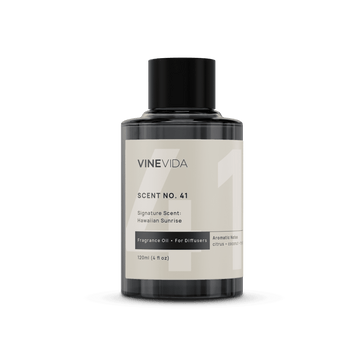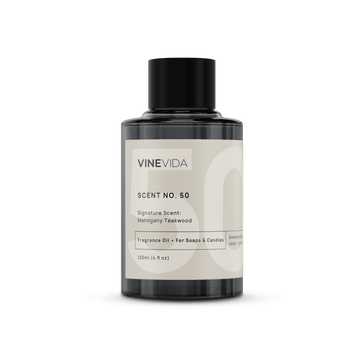One of the most exciting developments in research into essential oils is ways to control nature humanely. Plants metabolize chemicals to protect themselves against pests that might nibble on their leaves. Consequently, certain animals already speak plant language. When exercising a process called zoopharmacognosy, animals can often choose plants as medicines and instinctively know when to stay away from others based on how they feel interacting with their bodies. For this reason, essential oils can be the best rodent repellents for cars since rats and mice already recognize peppermint, cinnamon, and other spices as substances that may do them harm.
What are the Causes of Rodents in Cars?
Rodents are like the rest of us. All they care about is somewhere warm and cozy to lay our heads and to keep our families safe and well-fed. One of the less reported products of the COVID-19 lockdowns was the sharp rise in income from garages repairing the damage done to cars by rodents. Vehicles that would usually be busily ferrying people back and forth to work or nipping up to the store or school suddenly sat quietly. With fewer sounds and smells of humans, rodents decided to move in, causing astronomical damage to auto interiors and engines.
Closed windows and doors are sadly no deterrent. Mice head up into the wheel well, scurry over the brakes, then hang out into the engine. Many make nests in the air filter box, but sometimes they can find their way into the dashboard, where they inevitably get stuck and…well, you can guess the rest.
Also Read: Does Peppermint Oil Repel Mice?
5 Reasons Why You Need a Car Rodent Repeller
Smell
Let me tell you, the scent of deceased, decaying rodents has its page of horrors in aromatherapy!
It’s not just dead creatures that stink, either. Rats, in particular, communicate through messages in their urine. Consequently, they pee on everything. This might be inside the cabin of your vehicle or under the hood. These are delightful as they waft through the air vents because mice like to use the venting system to get from the engine to comfy seats. Exquisite if you have four legs; not so pleasant to humans.
Mechanical Damage
One of the first clues you may have for varmints hanging out in your engine is that it won’t start. Rats, in particular, are tremendous gnawers and will happily munch through wires. They are partial to a bit of wire as tooth floss anyway, but when you realize that companies like Toyota insulate their wires with soy, peanut, and other plant derivatives, you can see how rodents might be excited by yours. When you consider that experts suspect it will take a rat about a minute to destroy a cable, they will make short shrift on a car.
Fire Hazard
Besides the inconvenience of mechanical failure, frayed wires are fire hazards, as are twigs and bits of grass that rodents bring in to make their nests. It’s essential to take urgent and immediate action.
Disease
Rodent urine is associated with many diseases, including Weils Disease and the plague! Bacteria are carried from wherever they use as their toilet on their scurrying feet. Ordinarily, we might only be worried about food surface areas in the house. Still, in the car, little hands touch the vehicle's interiors and exteriors, and then children put their fingers in their mouths.
Cost
Rodent infestations can be dangerous and costly problems.
Looking for signs of Rodent Infestation in the Car
As stated, check under the hood, especially in the vehicle’s air filter box. This is dark, warm, and snug. Removing the top, usually secured by a pair of clips, is easy, but it pays to put gloves on. Rats are significant carriers of disease. If your vehicle has a plastic engine cover, it’s worth having a peek under it and inspecting your vehicle’s cabin air filter behind the dashboard. Have a good look under and behind the seats.
If you suddenly notice holes in your seats, bits of chewed-up foam, or insulation missing from the roof, it’s an excellent plan to consider putting down some traps and deterrents.
Look carefully for mouse and rat droppings too.
How to Keep Your Car Rodent Free
Suppose you are a mouse, the darker and more enclosed, the better. Covering your car will protect it from dust, but it will also be cozier for pests. In addition to leaving the vehicle uncovered, consider leaving the hood and trunk open if it is in the garage. If it’s light and exposed, it will be far less attractive to them. The best rodent repellent for vehicles is to open it up.
If you leave your car standing for a while, an excellent way to protect exteriors from rodent damage is to tape up the end of the exhaust. Critters often like to use this as a route.
Cars are attractive because they are warm and away from humans. Consider leaving a radio on in the garage, so they keep hearing voices which will put them off.
Using fragrance as a car rodent repellent is a natural way to protect your vehicle from costly damage.
Also Read: Insect Repellent Essential Oils
What is The Best Rodent Repellent For Cars?
Vinevida rodent repellent spray for cars is made from a blend of essential oils proven to be distasteful to rodents, including peppermint and cinnamon.
Essential Oils to Repel Rodents from Your Car
You would not believe the amount of research there is into repelling rodents. But if you have ever had an infestation, I’m sure you get it. Rats, in particular, are shag-nasty with brief gestation periods. They can have litters of up to 22 young, although eight or nine is more usual, and gestate for just 21 days. They can have up to 7 wastes in a year, so you are looking at around 100 young from one female, and that’s not counting their potential to interbreed. Just think of all those hanging out in your engine!
We know extraordinary amounts about how essential oils affect rodents because rats and mice form the basis for most experiments for human medicine, of course. They have potent senses of smell and smell in stereo, which helps them to identify predators or food to an accuracy of about 1cm. Amazingly their affinity with the smell is so strong that they can be trained to sniff out landmines and find cases of tuberculosis. This also means that they will likely find it very disturbing if you put a strong smell that they don’t like.
Also Read: How to Make Your Home Safe from Rodents Without Pesticides
What Smells Repel Rodents?
Let’s get this into proportion for a moment because rats hang out in sewers and speak in pee… unpleasant odors are really what they deal in, so it’s more than just the fact that they come across a pleasant smell or that turns them off. Certain plant extracts cause things to happen in rodent physiology.
Mint Vehicle Rodent Repellent
You’ll have noticed a few mint vehicle rodent repellent products on the market. That is because Scientific studies show that certain chemicals in mint dampen rodents' desires to mate. Since rats are very family-focused, eating and mating are their main drives. Take that away, and they are not happy at all. We see rodent repellant for cars as beastie family planning, and they won’t thank you for that!
Rats and Cinnamon Essential Oil
Our best rodent repellent for cars also contains cinnamon. Chemicals found in cinnamon do all manner of things to make rodent lives more difficult. We use cinnamon in our rodent-repellent car spray to take advantage of Some constituents proven to discourage them from gnawing. Other constituents depress their appetites, and rodents hate cinnamon so much that it is a repellent in its own right. Presumably, cinnamon irritates unwanted pests’ nasal passages, but that’s unclear.
Of course, many natural ingredients have proven effective against pests and have been used for thousands of years. Cinnamon and peppermint are just a couple that works quickly and effectively.
Use our best rodent-repellent spray for cars around the bottom of the vehicle. Spray around the wheels and exhaust where beasties like to make their entrances.
Remember that our rodent repellent For car engines are made of oil. Do not spray it onto hot machines. Please ensure the engine is thoroughly cooled before spraying.
Read More: Cinnamon Essential Oil.
Final Thought
Clear out rodents and banish them for good with the Best Under Hood Rodent Repeller from VINEVIDA.
















